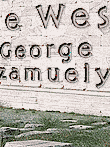The
US Supreme Court is about to intervene in Presidential Fiasco
2000. George W. Bush has appealed the Florida Supreme Court’s
decision to permit three Democratic counties to consider
the so-called "dimpled chads" in their manual
recounts. The pundits shake their heads and assert with
noisy confidence that the US Supreme Court will decline
to get involved in matters pertaining Florida electoral
law. This is nonsense. Yes, the Federal Courts refused to
issue injunctions to stop the manual recounts. At that time,
they were waiting to see how the Florida courts would rule
on this issue. Now that the Democrat-appointed Florida Supreme
Court has made a blatantly partisan ruling to facilitate
a Gore victory, the US Supreme Court is almost certain to
step in.
The
Bush campaign will argue that the Florida Supreme Court
changed the election rules after the election by sanctioning
recounts past the deadline set by Florida law. In addition,
the Court violated the separation of powers, as enshrined
in the US Constitution, by usurping the elected legislature
on the conduct of elections. Furthermore, by permitting
the counting of "dimpled chads" in just three
counties, the Court violated the Fourteenth Amendment Equal
Protection Clause by not giving equal weight to all of Florida’s
voters.
By
declining to order manual recounts throughout the state
of Florida, the Supreme Court was demonstrating that it
was interested not so much in accurate vote totals as in
a Gore victory.
It
is possible of course that the US Supreme Court will refuse
to get involved. However, at some point intervention will
become necessary. For example, Florida’s lawmakers could
pass a law tomorrow declaring that secretary of state Katherine
Harris had interpreted the legislature’s intent correctly
when she refused to extend the certification deadline. Should
Gore overtake Bush in the recount this weekend he would
presumably challenge the Florida legislature in Federal
Court. The Supreme Court may prefer to hear that case. Alternatively,
the Republican-dominated Florida legislature may choose
to ignore the results of the recount altogether and decide
on its own Republican slate of electors. Gore’s challenge
to that might also end up on the US Supreme Court docket.
Or the US House of Representatives may intervene and refuse
to accept the Florida electors. Florida’s votes could be
called into question if at least one senator and one representative
raise an objection when Congress meets to count the Electoral
College. Each chamber would vote separately on any objection,
which would need a majority in both houses to be sustained.
Since the Republicans are likely to have a majority in both
chambers, their objections will probably be sustained. The
US Supreme Court may then intervene to decide whether the
winner of Election 2000 is the candidate with a majority
of the Electoral College – which, if Florida is discounted,
would be Al Gore. Or whether the winner is to be decided
by the US House of Representatives – which, given the
fact that the Republicans comprise a majority the state
delegations, would be George W. Bush. We will never know
now who really won in Florida. The 43rd President
of the United States will owe his job to a decision of the
US Supreme Court. He will be a widely ridiculed figure,
not just a one-term President but probably not even the
nominee of his Party in the next Election.
Happily,
we will enjoy a four-year vacation from all the "indispensable
power" and "lone Superpower" bluster of recent
times. It will be hard to make the case for US hegemony
by a President who probably lost the election. Even before
the Florida debacle, the US Government was being forced
to scale back the arrogant assumptions of the Madeleine
Albright era. The Clinton Administration had virtually given
up trying to stop the European Union from creating a European
military. The EU has just committed itself to establishing
by 2003 a mobile force of 60,000 troops, capable of being
deployed within 60 days. The EU has pledged about 100,000
servicemen, 400 combat aircraft and 100 ships to this nascent
force. The commander – amazingly enough – will
be a German, General Rainer Schuwirth. Second-in-command
will be an Englishman, General Graham Messervy-Whiting.
Significantly, European members of NATO that are not in
the EU, as well as European countries seeking to join the
EU, have all pledged to contribute to this pool. The idea
is that if the Europeans want something done they will go
first to the Americans. If Washington turns them down, they
will make use of their own armed forces. It’s just a polite
way of saying Europe does not need America any more. This
is the beginning of the end for NATO. Needless to say, this
is being accompanied by the usual hot denials of rivalry
between NATO and the European Union. "What is being
done is going to make NATO stronger, not weaker," declares
British Defense Minister Geoff Hoon. "We need a strong
European pillar [in NATO]," burbles German Foreign
Minister Joschka Fischer in standard opaque Eurospeak, "This
is part of the European integration process." The EU
force is "designed to complement NATO and not to duplicate
it or undermine it, certainly not to replace it," pontificates
windbag NATO Secretary General Lord Robertson, "Those
who talk about some single European army with a European
Union cap badge and some common European uniform are simply
turning the truth on its head." "There is no will
in Europe to use its collective capabilities against NATO,"
says French Defense Minister Alain Richard. Well, no one
had ever suggested that Europe is about to go to war with
the United States. "There may be circumstances for
these limited missions when the Americans don’t want to
be engaged. All we are saying is in these circumstances
we should have the ability to act if we wish to do so,"
British Prime Minister Tony Blair explained. It is hard
to think of a recent military project that filled Americans
with trepidation and Europeans with martial ardor.
Such
disclaimers have very little credibility. Why go to the
trouble of creating your own armed forces if the NATO arrangement
is so satisfying to all concerned? Why antagonize Washington
when all you want to do is to help out the Americans? Britain’s
ragtag army of embattled Thatcherites is right about this,
if about nothing else. "This has nothing to do with
the defense of our country and everything to do with going
with the flow and creating a federal Europe," rants
British Tory leader William Hague. The "neo-conservatives"
are also very unhappy. New Republic dim bulbs like
Lawrence F. Kaplan are beside themselves with fury. According
to this in-house apologist for Empire, the European Security
and Dense Identity is "a lousy idea that, if realized,
could torpedo NATO…. The danger isn’t that a European force
will become America’s military rival. To begin with, the
Europeans couldn’t fight their way out of a pastry shop….
And, if less pliant than they were during the cold war,
the Western Europeans are still, after all, our allies.
The danger, rather, is that the Europeans – the French,
in particular – will use their newfound military autonomy
as a bargaining chip to diminish American influence on the
Continent and frustrate US foreign policy more broadly."
Note the peculiar – and yet so characteristically "neo-conservative"
– mixture of complacency and hysteria. Following Maastricht
we were regaled with endless stories explaining the impossibility
of the Europeans creating a single currency. The euro is
now in place. Then came the stories establishing beyond
doubt that the European welfare state is about to collapse.
The Europeans appear to be living pretty well – in
many ways a lot better than Americans. Then we were told
of Europe’s imminent demographic demise. Millions of immigrants
from the Third World had to be allowed immediate entry.
Now we are being told to scoff at Europeans who can’t "fight
their way out of a pastry shop."
Yet
if Europe is so pathetic why are New Republic writers
perpetually foaming at the mouth about it? Kaplan offers
an answer. "America’s global clout," he writes,
"derives largely from its preponderance of military
power, and, to the extent that ESDI lessens it, US influence
will decrease as well. Conversely, the political heft the
Europeans would derive from an independent army would give
their preferences greater weight in international affairs."
This is imperial solipsism gone mad. Imagine! The Europeans
are pursuing policies that "would give their preferences
greater weight in international affairs." What should
they do? Act so as to give "American preferences greater
weight in international affairs"? Why not scrap Europe’s
governments altogether and have the whole place run from
Washington? Now, that’s "global leadership."
Thank
you, Florida, for this holiday from "global leadership."










